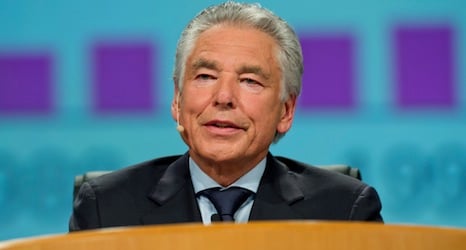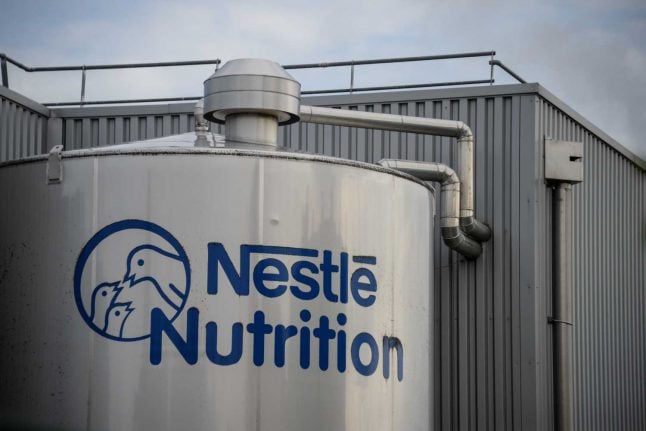Peter Brabeck-Letmathe’s comments to the 146th annual general meeting of the company in Lausanne were widely interpreted in Swiss media as a veiled threat that the company is prepared to move its headquarters if domestic regulations become too unfriendly.
“The political and regulatory environment for publicly listed companies is becoming more difficult in this country,” Brabeck-Letmathe said, according to a copy of his speech issued by the company.
“The long-term stability and predictability of the legal framework and reasonable regulation, which are crucial prerequisites of entrepreneurial activity, are constantly being challenged.”
The 69-year-old Austrian said a new consensus was needed between the Swiss economy, politics and society.
“Efforts need to be made on all sides to deepen mutual understanding and to find the right balance,” he said.
“Nestlé wants to stay in Switzerland,” he insisted.
But “Nestlé – the management and the employees – want to continue to feel welcome in this country and contribute to its success story, not only today, but also in the future.”
Brabeck-Letmathe, who got his start with Nestlé in 1968 when he delivered ice cream to customers in a freezer truck that he drove around the Swiss Alps, was earlier critical of the Minder initiative to stop “abusive” executive pay.
The initiative, spearheaded by small businessman Thomas Minder and backed by Swiss voters last month, requires Swiss companies to give shareholders a binding vote on the total compensation for executives.
Pay doled out in advance to new executives is also to be banned along with golden parachutes to departing bosses.
Before the vote Brabeck-Letmathe warned that no company in its right mind would set up headquarters under Minder’s rules.
He changed his tune slightly on Thursday, saying it was crucial to “respect the Swiss voting population’s decision”.
Brabeck-Letmathe added that it was necessary “to find practical legislative solutions which safeguard the long-term attractiveness of Switzerland as a business location.”
He underscored the benefits Nestlé, which is celebrating its 150th anniversary of its founding in Vevey (in the canton of Vaud) this year, brings to the country.
Although sales in Switzerland account for only two percent of the company’s global turnover, the company has invested 3.2 billion francs in its home country in the past 10 years (seven percent of the global total).
More than 60 percent of Nestle’s research and development spending worldwide is in Switzerland.
But while the company’s headquarters remain in Vevey, production in Switzerland only accounts for around five percent of global turnover, and 80 percent of that is exported.
Only three percent of Nestlé’s 339,000 employees work in Switzerland, while ownership of the company is two-thirds foreign and just one-third Swiss.



 Please whitelist us to continue reading.
Please whitelist us to continue reading.
Member comments